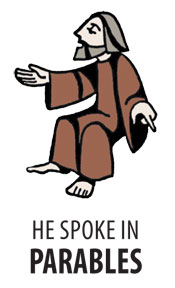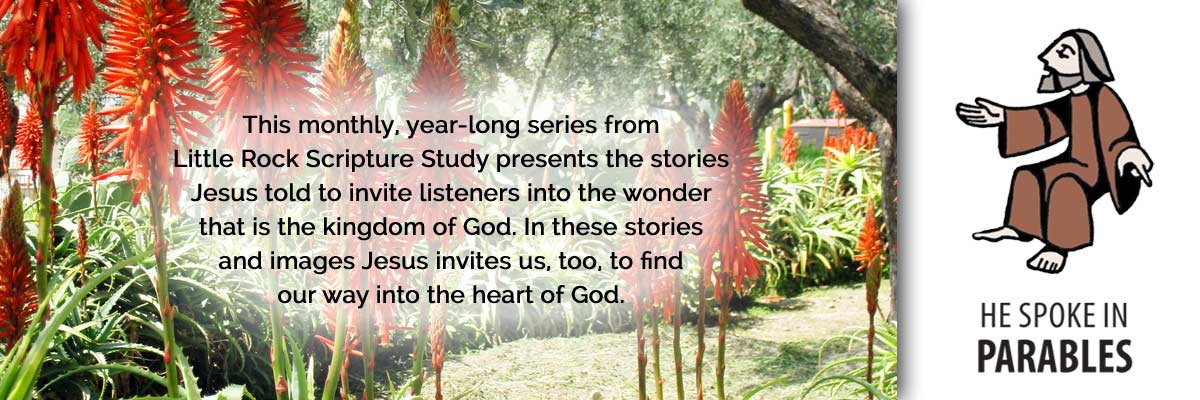Official Website of the
Catholic Diocese of Little Rock
God’s field yields both wheat and weeds
Published: March 18, 2015
This is the third column in a 12-part series.
By Clifford M. Yeary
Associate Director, Little Rock Scripture Study
Jesus’ parables are full of surprises for those who listen carefully, and for his disciples in particular. In the moment or two it takes to speak the parable of the wheat and the weeds (Matthew 13:22-30), things are said with apparent aplomb that would have raised curiosity or jarred sensibilities. Yet, the parable moves on without skipping a beat to scramble a listener’s assumptions concerning the way things are supposed to work in the world.

In this parable, there is a farmer, a wealthy farmer, one who owns not only a field, but slaves. Now, this farmer has sowed his field with good wheat seed, and so naturally expects to grow healthy, mature wheat in his field. But this isn’t really a story about a farmer, for Jesus introduces his parable by clearly stating that this is a story that will tell us what the kingdom of heaven is like.
Today, when many of us read or hear this parable, we might be tempted to think it is a story about going to heaven, and who is going to get there or not. But when Jesus spoke this parable his listeners would have made a different assumption. They would have understood that this was a parable about how God was going to establish his kingdom on earth. The kingdom of heaven was about heaven coming down to earth, about God’s will being fully achieved for his people Israel in the land he had given them.
Many of his listeners would have made a further assumption: since this parable was about the kingdom of heaven coming to earth, then the master’s field must be Israel. They would not be surprised to learn that an enemy had planted weeds in the farmer’s field. They could see the enemy’s weeds, like Roman soldiers, all around them. Some, perhaps, even saw many of their fellow Jews as weeds — sinners that needed to be cast from the land. Many, but not all, would even have expectations that this parable might provide new hope that an anointed leader would soon pluck the weeds and free God’s people from their subjugation to Rome and estrangement from God’s many promises.
If that is what they hoped Jesus’ parable would tell them, hearing that the weeds were to remain growing side by side the good wheat would have been beyond puzzling, it might even have stirred up anger and provoked rejection of Jesus. How could someone who was announcing that “the kingdom of heaven is at hand” (Matthew 4:7), also proclaim that evildoers would be living alongside the righteous until the very end?
A reason for this is given. Rather than uprooting the weeds, they are to be allowed to remain until the harvest, lest “if you pull up the weeds you might uproot the wheat along with them” (Matthew 4:17).
Two thousand years later, it is not uncommon to interpret this parable as an explanation for the presence of both good and bad people inside the Christian community. Indeed, when we read the caution against pulling the weeds, we are reminded of another of Jesus’ sayings: “Stop judging, that you may not be judged” (Matthew 7:1).
This parable provokes a bigger question, one that it does little to answer. Where does evil come from? If a good farmer plants only good wheat in a field, where do the weeds come from? There is no larger question which any monotheistic religion must attempt to answer: if a good God created everything, why is there evil in the world? In the context of the parable, the farmer/master tells his servants, “An enemy has done this” (Matthew 13:28).
The parable isn’t told in order to unveil the enemy, however. It was told then, and we continue to ponder it in our time and place, because its focus is actually on the good seed, the wheat. Regardless of the origin of the weeds, for the sake of the wheat, we are to do no harm to any of the plants of the field. This is a consistent message from Jesus: “I say to you, love your enemies … that you may be children of your heavenly Father, for he makes his sun rise on the bad and the good, and causes rain to fall on the just and the unjust” (Matthew 5:44-45). God waters even the weeds.
Study Questions
- What did the phrase “the kingdom of heaven” likely mean to first century Jews?
- What do you think a modern farmer or gardener would make of the advice of the farmer in the parable to leave the weeds untouched until harvest time?
- What are some dangers of categorizing people as either weeds or wheat?
- Can you think of any example of someone you know that may have been transformed from a “weed” to an amber stalk of nutritious grain?
This article was originally published in Arkansas Catholic March 14, 2015. Copyright Diocese of Little Rock. All rights reserved. This article may be copied or redistributed with acknowledgement and permission of the publisher.




